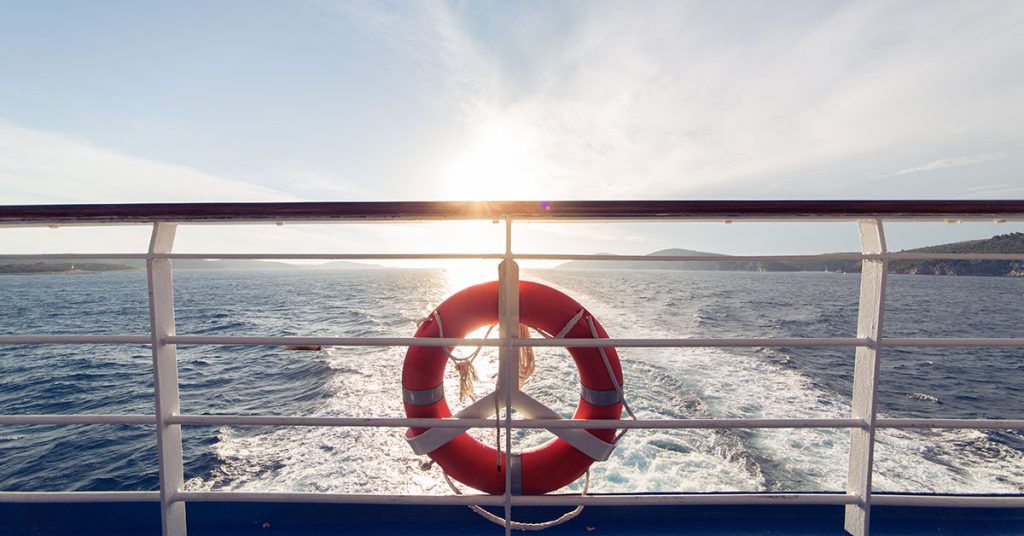The cruise industry is under scrutiny as new reports highlight significant emission concerns.
Leading cruise lines have issued statements defending their environmental record amid increasing consumer pressure.
Cruise Industry Faces Emissions Scrutiny
The cruise industry’s environmental impact has come under intense scrutiny following a detailed analysis by Which?, highlighting alarming pollution levels from major cruise lines. In 2023, Disney Cruise Line topped the list of worst polluters, with its vessel, Disney Dream, spewing nearly 1.5 tonnes of CO2 per nautical mile. Norwegian Cruise Line followed closely, with its coordination of 10 vessels exacerbating the ecological concerns.
The findings by Which? align closely with the EU’s 2023 Monitoring, Reporting and Verification (MRV) carbon emissions data, painting a stark picture of the situation. Norwegian Epic was cited as the most significant contributor, responsible for emitting equivalent emissions to a small town. These revelations are prompting broader questions about the sustainability of cruise travel.
Consumer Group’s Alarming Findings
The Which? analysis indicates that cruise holidays have a larger carbon footprint compared to flights, challenging preconceived notions about the industry’s green credentials. A Mediterranean cruise, according to their data, emits five times more CO2 per person than a flight to Barcelona and hotel stay.
The emissions for a Caribbean cruise, including roundtrip flights, double those of a full board holiday in Barbados. These insights reflect a critical need to re-evaluate the environmental assertiveness of cruise lines.
Industry Responses and Challenges
Responses from the cruise lines, including Disney and Norwegian, highlighted the complexity involved in emissions accounting. Disney critiqued the methodology, arguing it did not fully represent their operational nuances.
Norwegian committed to reducing emissions by 25% by 2030, citing the need for comprehensive emissions understanding, beyond mere distance metrics. MSC Cruises voiced similar concerns, questioning the reliability of the analysis and the potential misinformation it could propagate among consumers.
Despite criticisms, these companies agreed on the necessity of emission reductions, noting technical advancements and operational efficiency improvements as pivotal strategies.
Technological Innovations and Commitments
The report noted positive strides within the industry, particularly from Hurtigruten and Viking, who are investing in sustainable solutions such as battery-powered and hydrogen-propelled ships.
Hurtigruten was applauded for its partial battery-powered ships, while Viking was commended for taking a step further with hydrogen fuel cells. These innovations promise to significantly transform the industry’s carbon footprint over the coming years.
These advancements underscore a collective industry commitment to responsible travel and greener practices. New technologies, such as scrubbers and LNG fuels, are being increasingly utilised, despite ongoing debates about their effectiveness and repercussions.
Diverse Industry Reactions
The diverse reactions from cruise lines underscore the complexity of the issue. Disney defends its use of alternative fuels that exceed IMO requirements, stressing its adherence to high standards of environmental stewardship.
MSC Cruises and Carnival Corporation highlighted their reliance on LNG technology, asserting its role in reducing emissions significantly. They emphasised the need for substantial progress from government and fuel suppliers.
In 2023, Carnival reported progress in reducing fleet emissions by over 10% since their peak year, attributing improvements to technological advancements and increased port time leverage.
Long-term Sustainability Goals
Carnival Corporation detailed its aggressive climate actions, aiming for net-zero emissions by 2050. They have already achieved a 10% reduction in greenhouse gases, despite increasing fleet capacity.
The cruise industry faces immense pressure to innovate and redefine its strategies to truly embrace sustainability. The companies’ adoption of new technologies and their collaborative approaches signal an industry-wide shift toward more eco-friendly operations.
The conversation around emissions revisions is nuanced. It requires a balanced understanding of operational scopes, technical capabilities, and consumer impact to advance meaningfully.
Future Considerations and Consumer Awareness
Consumers are increasingly concerned about travel impacts, demanding transparency from cruise lines. This push for clarity reflects the growing environmental consciousness among holidaymakers.
As the data from 2023 indicates, emissions accountability is crucial for informed consumer decisions. Cruise lines are urged to provide clearer data to help consumers make environmentally responsible choices.
As consumer awareness about environmental impacts grows, the cruise industry must embrace transparency and sustainable practices to ensure its future.
This evolving landscape calls for collective action and innovative solutions to redefine industry standards.

